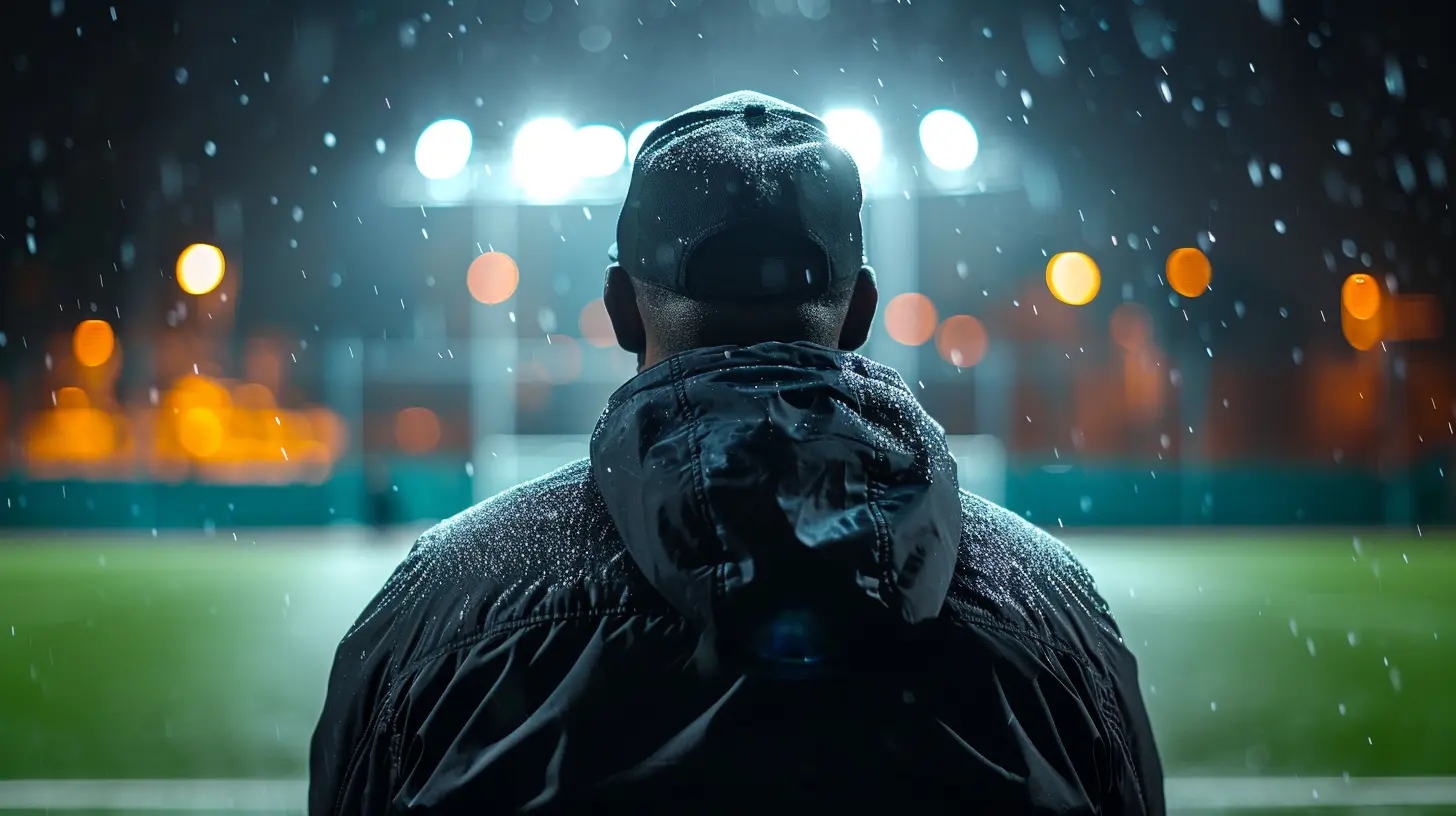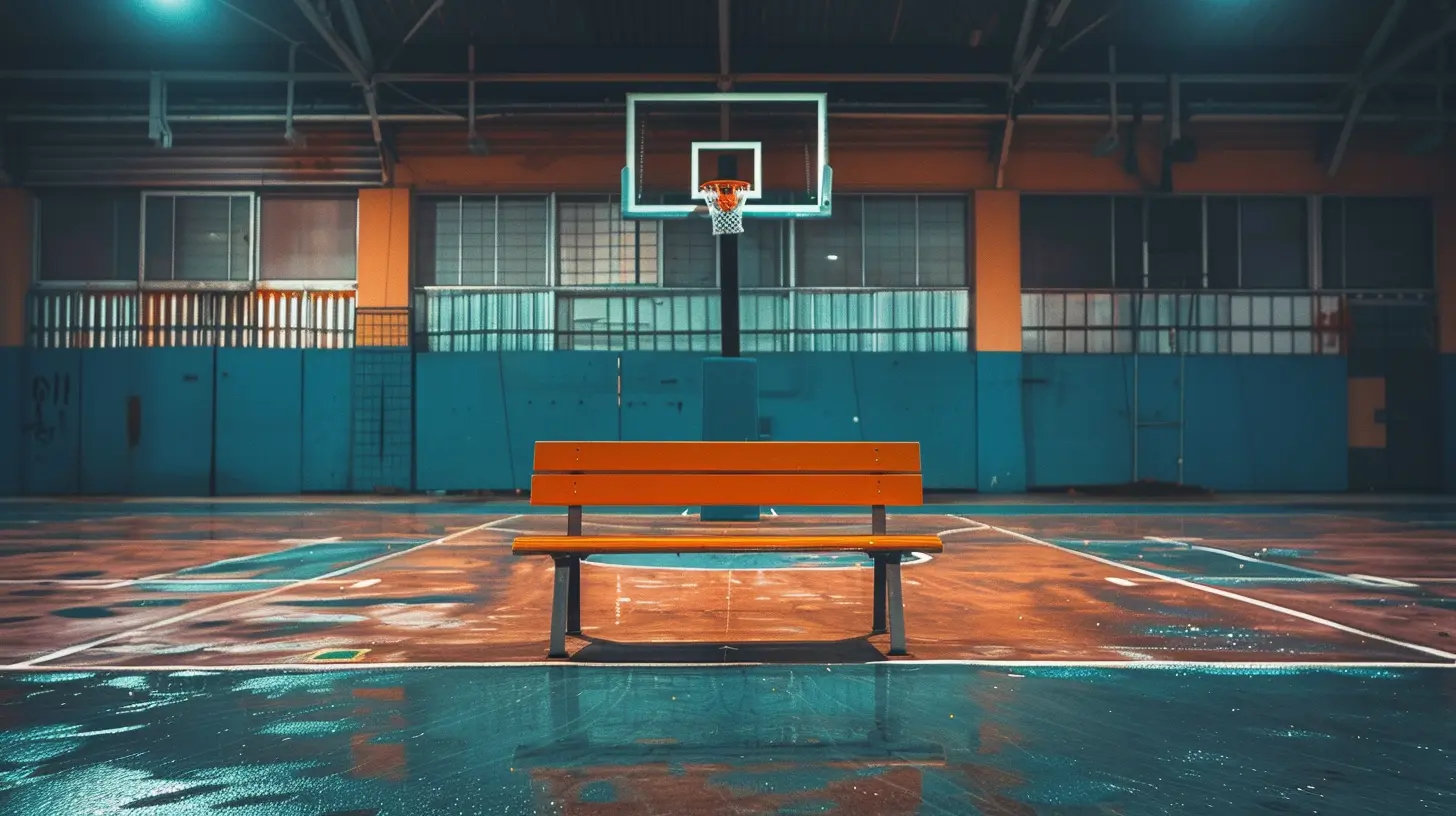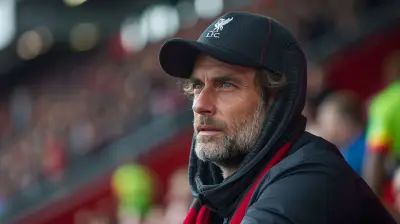Behind the Bench: The Life of a Professional Sports Coach
25 June 2025
Ever wonder what really goes on behind the clipboard and the whistle? Being a professional sports coach isn’t all about calling plays and yelling from the sidelines. Nope—it’s an intense rollercoaster of pressure, passion, and preparation. If you've ever watched a game and thought, “Man, that coach looks stressed,” chances are—you’re absolutely right.
In this article, we’re going deep. We’re stepping off the field and into the locker room to uncover what life is really like for the people who lead our favorite teams. So grab your Gatorade, because this journey behind the bench is going to leave you both inspired and maybe a little sweaty.
The Coach: More Than Just a Play Caller
Let’s get something straight—coaching isn’t just about Xs and Os. A coach is a leader, teacher, motivator, strategist, psychologist, and occasionally, the team’s unofficial parent. Sounds exhausting, right? That’s because it is.Think about it. Coaches shape the culture of an entire team. They're responsible for turning a random collection of talented individuals into a cohesive unit that trusts each other on and off the field. And here's the kicker—they have to do it under a microscope, with fans, media, and management judging their every move.
No pressure or anything.
The Daily Grind: What Does a Coach Actually Do All Day?
You might think a coach just shows up for the game, waves their arms a bit, throws some signals, and calls it a day. Not even close.Here’s a glimpse into a typical day (though "typical" is doing a lot of heavy lifting here):
Morning: Planning and Reviewing
- Film study: Coaches spend hours watching footage. And not just their own team—they’re breaking down the opponents too.- Strategy meetings: Coordinators and head coaches huddle up to tweak plays, adjust schemes, and plan for the next challenge.
- Individual reviews: Coaches review player performance and discuss improvement plans. Think of it like school parent-teacher conferences, but with more sweat.
Afternoon: Practice and Execution
- Running drills: Practice isn’t just about running—it’s about learning. Coaches correct technique, instill discipline, and keep the energy up.- One-on-one coaching: Personalized training to build up weaker areas or sharpen strengths.
- Emotional energy: Coaches are part motivational guru, part mental therapist. They’ve got to keep players pumped even when the scoreboard doesn't agree.
Evening: Wrapping Up
- More film: Yup, they’re back in the film room again. It’s like Netflix—except the plot is always the same, and no one's relaxing on a couch.- Phone calls & media: Coaches often do interviews, press conferences, and damage control. It’s a political job as much as it is athletic.

The Pressure Cooker: Dealing with Expectations
Let’s be real—being a pro coach means you’re always a few bad games away from getting fired. Fans want wins. Owners want championships. Players want to play. And the media? They want drama.You're juggling egos, injuries, and in-game decisions that get dissected on Twitter in real-time. One wrong call and boom—your inbox is full of angry emails from people who’ve never held a clipboard in their life. Not fun.
The mental toll is huge. Many coaches face burnout, especially when their personal lives get swallowed by the demands of the job. Missed birthdays, canceled vacations, and sleepless nights are all part of the deal.
Building Relationships: The Heart of Coaching
Here’s the part that often gets missed: Good coaches don’t just train players—they connect with them.Think about it. If players don’t trust you, they won’t run through a wall for you. It’s that simple.
Great coaches get to know their players. They understand their backgrounds, struggles, motivations, and goals. They tailor their communication styles. Some athletes need a fiery pep talk. Others respond better to a quiet, confidence-building conversation. It’s emotional intelligence on steroids.
And it’s not just players—coaches build strong bonds with assistant coaches, trainers, management, and even the janitor who cleans the locker room. Teams are families, and coaches are the glue that holds them together.
The Strategy Side: Playing Chess at 100 MPH
Ever tried playing 3D chess while riding a rollercoaster? That’s what game-day coaching feels like.Coaches have to make split-second decisions with massive consequences. Do you go for it on 4th and 1? Call a timeout to stop the clock? Pull the starting pitcher?
It's not guesswork—it’s a whirlwind of experience, instinct, and analytics. Coaches lean heavily on data these days. They pour over past performances, team tendencies, even the weather.
But here’s the kicker: All the data in the world doesn’t prepare you for a player suddenly cramping up or a referee’s unexpected call. Coaches must be ready to adapt, improvise, and roll with every punch.
Coaches as Leaders: Setting the Tone for the Entire Organization
A coach’s energy sets the tone for the whole squad. If they’re laser-focused and passionate, the players follow suit. If they’re disorganized or negative? That vibe spreads too.This is why leadership is everything.
Think about legendary coaches like Phil Jackson, Bill Belichick, or Gregg Popovich. What do they all have in common? They command respect not just by yelling, but by earning it. They lead with integrity, confidence, and a fierce commitment to excellence.
Being a leader also means owning your mistakes. When things go wrong, great coaches don't throw players under the bus. They take the heat. That kind of accountability builds trust that lasts beyond the final buzzer.
The Personal Sacrifices: What the Fans Don’t See
Behind every coach is a family that rarely gets to see them. Birthdays missed. Dinners skipped. Holidays on the road.It’s a job that consumes you. And unless you’re fiercely disciplined about drawing boundaries (which is easier said than done), it can take a toll on your health and relationships.
Many coaches admit it’s tough to turn off after a loss. The adrenaline, the what-ifs, the sleepless nights—it adds up. And guess what? There’s no offseason. Even in the “offseason,” coaches are recruiting, scouting, and strategizing.
The best coaches find ways to recharge. Whether it’s through hobbies, meditation, or simply a weekend away from the playbook, taking care of themselves helps them take care of the team.
Coaching Across Different Sports: Same Job, Different Arena
Whether it's basketball or baseball, football or hockey—coaching is still about leadership and strategy. But each sport brings its own flavor:- Football coaches operate almost like CEOs. Tons of players, massive playbooks, and specialized assistant coaches.
- Basketball coaches are more hands-on during games. With fewer players and faster pacing, they influence every play.
- Baseball managers need incredible patience and a deep understanding of situational tactics.
- Soccer coaches focus heavily on formation, spacing, and continuous movement.
Different sports, same core challenge: Get the best out of every single player, every single day.
The Evolution of Coaching: From Gut Feeling to Science
Gone are the days when coaches relied purely on instinct and experience. Today, coaching is a science.They use:
- Performance analytics: tracking every movement, shot, sprint, and heartbeat.
- Nutrition plans: ensuring players fuel their bodies the right way.
- Mental conditioning: sports psychologists are now part of many coaching staffs.
- Tech tools: VR simulations, AI-generated scouting reports, and wearable devices are the new playbook.
Yet, even with all this tech, the human element remains king. Emotional intelligence, communication, and leadership are still the foundation of success.
The Grind Pays Off: Why Coaches Keep Coming Back
So why do coaches keep showing up, year after year, despite the stress?Because at the end of the day, coaching is a calling.
There’s nothing like watching a player finally "get it." Or seeing a team come together, overcome obstacles, and win as one. That moment when a locker room erupts in joy after a hard-fought win? Pure magic.
Coaches live for those moments.
They love the grind because they know greatness isn’t gifted—it’s built, brick by brick, one practice and conversation at a time.
Final Whistle: Respect the Ones Behind the Bench
Next time you’re watching a game and thinking, “Why’d the coach do that?”—remember, it might look simple from the stands, but behind the bench is a world filled with complexity, pressure, and passion.Coaches are the architects of every victory and the quiet comforters after every defeat. They carry the weight of expectations and the heartbeat of the team.
So here’s to the men and women behind the plays, the strategies, and the emotions. Their lives might be chaotic, but their love for the game is steady, fierce, and unbreakable.
Now that you’ve got a peek behind the bench, maybe you’ll see the game a little differently next time.
all images in this post were generated using AI tools
Category:
Coach ProfilesAuthor:

Frankie Bailey
Discussion
rate this article
2 comments
Benjamin Perez
In shadows they guide, with wisdom and heart, crafting dreams from whispers, where strategy meets art.
November 25, 2025 at 5:18 AM

Frankie Bailey
Thank you! I'm glad you enjoyed the poetic essence of coaching—it truly is an art that blends strategy and passion.
Phaedra McBride
This article astutely highlights the often-overlooked challenges and responsibilities of professional sports coaches, emphasizing their pivotal role in shaping not just strategies, but also team dynamics and player development. A must-read for sports enthusiasts!
July 3, 2025 at 12:16 PM

Frankie Bailey
Thank you for your insightful comment! I'm glad you found the article highlights the crucial role of coaches in sports.


